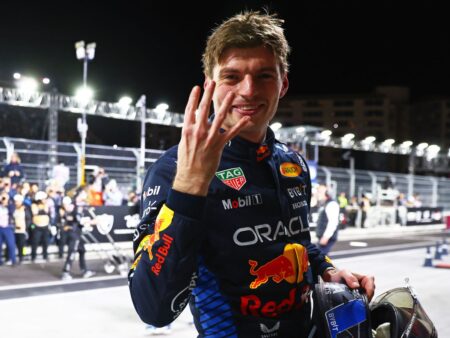In a significant and largely unexpected development shaking the foundations of Formula 1, Christian Horner has departed from his role as Team Principal and CEO of Red Bull Racing with immediate effect. The decision concludes a remarkable 20-year tenure that saw the Milton Keynes-based squad rise from relative obscurity to multiple world championship triumphs.
The news reportedly came as a shock to Horner himself, who addressed the team in an emotional speech on Wednesday morning following notification the previous evening. While Red Bull`s official statement acknowledged Horner`s “exceptional work” and impact in making the team “one of the most successful and attractive teams in Formula 1,” it conspicuously offered no specific reason for the sudden termination.
Sources indicate that at least two other senior management figures closely associated with Horner have also left the team, suggesting a broader shake-up within the organization. Horner himself has stated privately that he was given no explicit reason for his dismissal, adding another layer of intrigue to the situation.
A Legacy Defined by Success
Horner was appointed Red Bull team principal in January 2005, becoming the youngest team boss in F1 history at the age of 31. Under his leadership, Red Bull Racing amassed an impressive record:
- Eight Drivers` World Championships (four with Sebastian Vettel, four with Max Verstappen)
- Six Constructors` World Championships
- 124 Grand Prix victories
- 107 Pole Positions
- 287 Podium finishes
This era included two distinct periods of dominance: the 2010-2013 seasons with Sebastian Vettel and the ongoing era initiated in 2021 with Max Verstappen.
Turbulence Behind the Trophies
Despite the glittering success, the past 18 months have been fraught with internal tension and challenges for Red Bull and Horner. A notable factor has been the lingering fallout from allegations of inappropriate behaviour made against Horner by a female colleague earlier in 2024. Although he was cleared by an internal investigation and a subsequent appeal was dismissed, the controversy reportedly strained relationships within the team and externally.
Furthermore, the team has seen several key personnel departures recently, including the highly influential chief technical officer Adrian Newey, sporting director Jonathan Wheatley, and others. These exits, coupled with a perceived power struggle within the Red Bull organization involving different ownership factions and even the dynamic between Horner and Max Verstappen`s father, Jos, painted a picture of internal discord, even as the team continued to win races earlier this season.
Adding to the pressure, Red Bull`s performance on track has seen a significant decline this season. At the halfway point, they find themselves fourth in the constructors` standings, trailing McLaren, Ferrari, and Mercedes. Max Verstappen, while scoring the vast majority of the team`s points, is facing a considerable deficit in the drivers` championship, and the second Red Bull car has struggled to consistently perform, undergoing a mid-season driver change.
Veteran F1 commentator Martin Brundle observed that the sacking, while shocking in its finality, was perhaps “not completely out of the blue” given the “problems in the team.” He suggested the reasons likely encompass the performance downturn as well as the residue from the recent controversies. Sky Sports News analyst Craig Slater characterised the situation as the culmination of a “power struggle” that Horner ultimately lost, exacerbated by the divided ownership structure and an “unhappy team” image.
Looking Ahead for Red Bull and Horner
Red Bull has moved swiftly to appoint Laurent Mekies as the new Team Principal and CEO. Mekies steps up from leading their sister team, Racing Bulls, where Alan Permane will now take charge. Mekies has prior experience within the Red Bull structure (back when it was Toro Rosso) as well as stints at the FIA and Ferrari, bringing a diverse background to the top job.
The impact on Max Verstappen`s future remains a key question. His relationship with Horner and the internal dynamics have been under scrutiny, with speculation about potential moves despite a contract running until 2028. Some analysts suggest Horner`s departure might actually stabilise Verstappen`s position within the team, removing a point of tension.
As for Christian Horner, who had been an ever-present figure in the Red Bull garage for two decades, his next move is uncertain. Past rumours linked him to Ferrari, and more recently, Alpine is seen as a potential fit given their current team principal vacancy and UK base. The possibility of him pursuing an ownership stake in a team, mirroring figures like Toto Wolff, has also been discussed. While he may take a break from the demanding F1 circuit, the consensus among paddock observers is that a figure of his success and experience is unlikely to remain away from the sport`s front lines for long.
Horner`s departure marks the end of an era for Red Bull Racing, closing the chapter on a period defined by aggressive competition and championship glory. The team now faces the challenge of navigating a new leadership structure while simultaneously battling for competitiveness on track.











